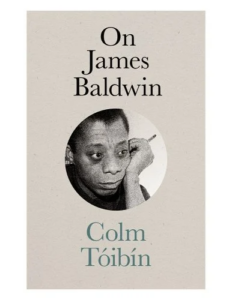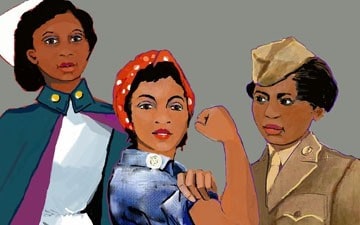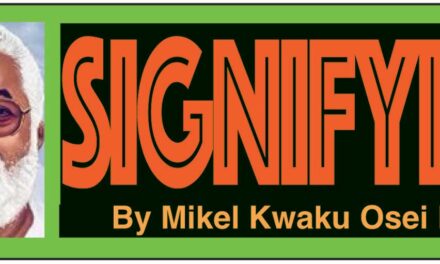
Colm Tóibín is one of the most prolific writers I know—who somehow remains generous with his time—and if it was ever his ambition to put the fear of God in others (especially writers), he has surely done it by publishing two books this year. His highly acclaimed and beloved sequel to Brooklyn, Long Island is an Oprah Book Club pick and a New York Times’ Editors’ Choice.
Article continues after advertisement
Mere months later: this wonderful new volume of essays, On James Baldwin. Part literary criticism, part social history, part tribute to an art hero, this book conveys with power and clarity the passion that Baldwin’s work elicits and the far-reaching impact it has had and continues to have on the collective imagination.
*
Caoilinn Hughes: To begin at the beginning: there was the word. Both you and Baldwin temporarily heeded it and even preached it, or considered doing so. That early influence of the Church is there so clearly in Baldwin’s use of language, his incredible range and control of register, and it’s there in the temper of your prose, too. Is it fair to say you share that influence?
Colm Tóibín: Enniscorthy, where I grew up, had a very close community and at the very center of it was the Catholic cathedral, and at the very center of that was the altar, at the very center of the altar were the priests, and then behind the priests, the altar boys, and I was an altar boy. So that whole idea of listening to language, as ritual… I was I suppose coming to consciousness really just as the Latin Mass changed to the English Mass, but I was there for the Latin Mass, and bits of the Latin Mass are still in my mind; Sursum corda, lift up your hearts.
Article continues after advertisement
And so it starts with being an altar boy for those Masses in Enniscorthy, the stained glass, the light, the Cathedral, the choir, the amazing choir singing Mozart… all of that mattered enormously, as did later at St. Peter’s, which was half a seminary and half a Diocesan school where a lot of the real influences on, certainly on me, were priests. And that came later with its ambiguities, but at the time it was very rich because the Diocesan priests were spending their summers in America because they were teacher-priests.
Therefore they were coming back in 1971 with all that stuff of the Civil Rights Movement and having debates about it. So that when I came to Go Tell It On a Mountain, I was fascinated by the Civil Rights Movement.
CH: That’s a fascinating context to be reading it in. Did it cry out to you as being a book about generational trauma? To my eye, Go Tell It On A Mountain tries to understand and express how the pains and struggles of parents are often incomprehensible and unforgiveable to their children—children who have pathologies directly resulting from experiences they haven’t directly lived through. In Ireland, there was generational trauma from colonization, and then from the church taking over from the colonizer as disciplinarian and bigoted autocrat.
there was a sense for him of the past looming large, explaining everything, and that Go Tell It On A Mountain would have to, no matter what, allow its characters to have their fates dictated by events that occurred thirty, forty years earlier.
CT: I had no real sense of the church as an oppressive force until later. The big thing for us was first of all the shadow of 1798, because from our house we could see Vinegar Hill [referring to the site of a historic effort by the rebel group the United Irishmen to hold and defend ground against the crown forces and the army of King George III, during Ireland’s occupation]. And all the ballads around that, which was a catastrophe, the rebellion. I mean, it might’ve seemed brave later, but at the time about 30,000 people were killed.
And the second shadow was the 1916 rebellion and the War of Independence. My grandfather was interned after the rebellion. And my uncle was interned during the civil war, where he was on hunger strike. So these things were mentioned scarcely, but nonetheless, they loomed large. And you realize that everything that you were arose from this, especially when 1966 came when I was eleven, which is the fiftieth anniversary of the rebellion.
Article continues after advertisement
So the connection is with Baldwin’s idea of the great migration, of the fact that his mother and his father had come from the South, had come to Harlem, that he had no actual roots in Harlem. The roots were in the South where they came from.
So there was a sense for him of the past looming large, explaining everything, and that Go Tell It On A Mountain would have to, no matter what, allow its characters to have their fates dictated by events that occurred thirty, forty years earlier.
And there was certainly always that idea that while we were an autonomous family, we actually came from this rebellion (not 1798 as much as 1916) and the civil war, which then in turn gave us Fianna Fail, and my father was director of elections, my uncle and father were very much involved. They were very loyal to the party.
So I was brought up in the party and in the church in a way that was unquestioning and that was not—as far as I was concerned—oppressive. So the curious idea is that I didn’t have any sense of any oppression until much later.
CH: That’s so interesting…because you would have been five when The Country Girls was banned and publicly burned by the clergy, and ten when John McGahern’s The Dark was banned for obscenity and he lost his job as a school teacher. It’s amazing to think that over in the US, Giovanni’s Room had been published, uncensored, 10 years earlier. Besides its brilliance and exuberance, the fact that it was published must have felt revelatory?
Article continues after advertisement
CT: It certainly didn’t to me. I suppose in Go Tell It On The Mountain, there’s enough of a gay subtext that matches the religious text that when I read at age 18, it certainly had a big effect on me.
I came to Giovanni’s Room later. There was a famous moment in the trial of Jeremy Thorpe, where Thorpe, in order to sort of soften up the guy that he wanted to sleep with, gave him a copy of Giovanni’s Room and that was in all the evidence, it was in all the papers. I would think that this has to be 1978 or early ’79.
The book was long out and it was it was available but it was named in that trial as the book one gay man would give to another, and that certainly struck me as, Wow, look at this: the James Baldwin of Go Tell It On a Mountain being mentioned in a trial in this way.
CH: You both write across genre—poetry, plays, essays, novels, lectures and speeches. Baldwin must have been very conscious of audience. He withstood criticism of his decision to write for “white” venues like The New Yorker, but then bankrupted his own play production by insisting on very cheap tickets so that a variety of Black audience members could attend.
I wonder in today’s publishing world if writing for many different audiences would come with some sort of pushback? Did you take any cues from Baldwin in this regard?
Article continues after advertisement
CT: I mean the big move for him was the writing of Giovanni’s Room—the feeling that if he was going to go on being a witness to what was happening in Harlem, it was really to be consumed downtown, you know, in Greenwich Village or indeed in even in the big publishing houses and he was expected to do that. I think he found those magazines—The New Yorker, Harper’s, The Atlantic—really open to him.
They really wanted this witness, and he was almost alone in that, and his refusal to carry that torch forever came with the publication of Giovanni’s Room. I mean part of the problem was that it was very hard to integrate the life he was living in Paris and in Istanbul and indeed in Greenwich Village with the life he came from and with the life of his sisters, his brother David, his mother in Harlem, and so to connect the two, he wrote a novel called Go Tell It On A Mountain about Harlem; he wrote a novel Giovanni’s Room about his life in Paris, and then Another Country was his effort to integrate the two.
If you’re Irish, you know that idea; that there’s a novel I could write about Enniscorthy, and there’s a novel I could write about what I was doing in Barcelona, but they don’t connect.
CH: He writes so brilliantly about this in his essays, on being several selves….
CT: I suppose the thing that mattered about him that affected his life more than anything was his protean imagination: that he couldn’t settle for being one thing. And he never really wanted to be homosexual as a label, and he always said that many races made up a white person, as they did an African American.
But you can watch him constantly not settling, not being able to finish Another Country, constantly taking on contracts he didn’t finish, moving between being an activist and desperately engaged with the civil rights movement to being back in Paris or in Istanbul where nobody really knew him. And so there’s a sense of freedom given to him as a gay man in that he could unsettle himself very easily or be unsettled.
And that gave, I think, an energy to the books and indeed to the essays, because he’s the only essayist of that period whose essays still remain not just relevant but utterly readable, as though there’s something amazingly fresh about them, which really doesn’t happen with Norman Mailer’s essays. And the only other essayist who was born in that decade whose essays have survived and will survive is Joan Didion. But there isn’t anybody else.
As an essayist he comes with a unique thing, which I actually think is called intelligence; he had a sort of piercing, glittering intelligence that was really superior to anybody else’s who was writing at that time. And it’s a curious thing to say about a novelist, because intelligence is not one of the things that is generally required very much, you know, other things are needed.
But we can see in Go Tell It On A Mountain, he had a sort of sensuous way of imagining. But then in some of the essays, he had the sharply intelligent way of perceiving things.
CH: Maybe this comes down to what’s at stake for Baldwin in the essay. You quote him as saying: “You do this book or you die. You have to go through this. The only thing you know is that when the book is over, you’re prepared to continue. You haven’t cheated.”
CT: Yeah. That sort of stuff about you die, he was given to that sort of remark, but he actually doesn’t write especially well about writing or indeed about literature. His big thing is about the fate of America and the idea of race and the idea of masculinity and how the questions that arise, which seem political, are in fact spiritual. He recognizes their political nature but wants to look at their source in the spirit.
I think what’s terribly important about Go Tell It on the Mountain is that almost no white person gets to speak.
And that’s a completely new idea, that instead of saying we want legislation, we want an actual change in how we imagine each other… rather than the rights we give each other. I think that was the big thing that separated him from those around him, which I think came from his child preaching and religious background and his religious reading.
CH: You say that his essays have had an agenda and that agenda was to save the stained soul of his country. I wonder if that agenda carries over to his fiction.
CT: I think what’s terribly important about Go Tell It on the Mountain is that almost no white person gets to speak. And this will be something that Toni Morrison would then take from him to say: you know, if white people want to read my book, they really are listening in, and I don’t write about white characters, and therefore you have the same idea as Joyce in Ulysses—hardly anyone English gets to speak in Ulysses.
Baldwin read Joyce in about 1950 in Paris. And I think that idea of being able to write about a self-enclosed world in Portrait of the Artist, where it isn’t the British occupation of Ireland that preoccupies people, I think that’s a huge liberation for anyone coming from what we might call a peripheral society or community. Don’t dramatize the big drama, because it might seem to be the drama that’s governing things, but actually when you look at how days go, there are many other dramas within families and within particular consciences.
And so that was the big moment for Go Tell It On a Mountain. No white people are going to be dramatized in this book.
CH: Speaking of who is centered, you have centered women in so many of your novels. In Brooklyn, Nora Webster, The Testament of Mary, House of Names, The Blackwater Lightship. Did it strike you as a young reader that he hadn’t done that, and why do you think he didn’t?
CT: Yes, I think that’s interesting. But the physiques of the women are very powerful when they appear. But I mean, in my case, it’s not women as much as my mother, my auntie Harry, and… I mean Brooklyn would be very much about the life of my mother’s sister. It’s a fictional version of it, but it’s not that there’s a sort of a generic idea of women as much as the women who were in the family when I was growing up.
For example, the house in The Blackwater Lightship is our house, but obviously then I start filling it with fictional stuff. Ida in Another Country is, I think, a great creation, but she is a secondary figure. Let me think. Yeah, it’s the mother and the aunt, but yeah, actually he didn’t do that, you’re right, yeah.
CH: There’s this great tension in Baldwin’s queer characters between tragic inevitability and resistance to type and expectation. He doesn’t use his characters as ragdolls in a morality play, punishing them when they make the wrong choices. He doesn’t burden them with redemption in their narrative arcs.
That’s something I love to see because I think increasingly there’s pressure on novelists to make clear that the way their characters behave, if poorly or if non-heroically, is acknowledged in some way by the narrative voice.
CT: Yeah, that’s absolutely true. People say, well, I don’t like that character. So what do you do about Jane Austen’s Emma then?
Giovanni’s Room seems to me a much more moral book, I mean a book that deals with large questions of morality than any of his other work, because it deals with someone’s failure to love. And it gives that failure to love a number of aspects.
One of them is that: it being a homosexual world, the only place you can love is Giovanni’s Room. The wider world is almost non-existent. You become invisible on the street and you become visible back in the room. And that that’s a political matter in terms of gay rights and gay visibility.
And similarly with Baldwin to Richard Wright he’s saying: I will not allow this idea that just because someone is Black, in a novel, his fate is already dictated.
But the second one is just a civil matter. There was a chance that came to love. And the person who’s narrating the story in a self-lacerating way describes his own failure to do that. And so it’s all about that idea of guilt. And what innocence looks like when it turns into guilt. And so it’s also an American in Paris novel in a tradition that comes from Henry James’ The Ambassadors; even Hemingway, who Baldwin claimed to despise. That idea of a single American man who has some family money in Paris really causing havoc emotionally.
So it’s about five different sort of books, which was what gave it its power. But yeah, you’re absolutely right. He isn’t interested, even slightly, in the idea that you have to signal to the reader that you too disapprove of the character. I mean, we would consider that another aspect of the infantile nature of America that gave us Doris Day and Gary Cooper.
CH: Then thinking about what his peers were doing… His relationship with Richard Wright is interesting in many ways, one of them being how this contemporary of his deals with this: how the gay characters behave and how they fare in the end.
CT: Yeah. I think his relationship to Wright or his essay, eventually, is a really serious matter. It is exactly what Joyce would have done in relation to Yeats. You know: If you want me to mythologize my world, I will not go to mythology that I consider sort of asinine, which is Irish mythology with all those stupid heroes! And, in the case of Joyce, I will not allow the British-Irish relationship to dictate how Stephen feels in my novel.
And similarly with Baldwin to Richard Wright he’s saying: I will not allow this idea that just because someone is Black, in a novel, his fate is already dictated. I will allow John Grimes in Go Tell It On a Mountain to waver, to wander, to vacillate. And it will all be about his own interior, which Baldwin had made free, so that many things can occur to it. And he felt that Richard Wright restricted that [freedom] by predetermining the fate of his character, especially in Native Son.
And so, it was a very, very serious argument. And it was conducted in a very public way, which is very hurtful to Wright, in the same way as Joyce would have done had Yeats moved further; had Yeats been closer to him, instead of just telling Yeats: you’re too old, I can’t do anything for you, which is what Joyce said to him. I think Baldwin had a very serious point to make.
CH: From the serious to the frivolous, what do you think Baldwin would have made of being an Oprah book club pick?
CT: Oh, I think Baldwin would love Oprah. I really do. And yeah, I think that she would be one of his friends. I mean, I really think that.
CH: If he were alive today–
CT: I think the big thing that Baldwin would not understand is the extraordinary prison population in America. That’s something he didn’t see coming. He died in ’87. Reagan started it and Clinton kept it on. I think that would be the thing that would really frighten him.
CH: It’s chilling to read his hopefulness in that regard.
CT: It is, really. But I think he would have been interesting about the Obamas. He would have been great on Abu Ghraib. He would have really understood Black Lives Matter. As he did when it came into the 70s, as he did with the Panthers. While he was apart from them, he also really understood where they were coming from.
And he would have been really, really good on Trump. Really, really, really, really good on him. He would have really enjoyed his life for a while on Trump. Because before Trump is anything, he’s a racist.
________________________
On James Baldwin is available now from Brandeis University Press.




